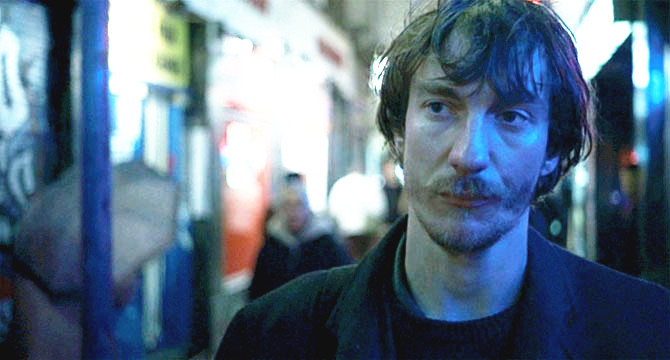
There are so many exciting and powerful performances in film that receive recurring praise and admiration. The roles that tend to stand out are the ones often described as “intense”; performances of great magnitude and strength.
To understand what many mean when they talk about an intense performance, one only has to glance at Robert De Niro’s work with Martin Scorsese – Travis Bickle, Jake La Motta, and even outside of this partnership, the first and famous Russian roulette sequence in Michael Cimino’s The Deer Hunter is acting at its most intense.
De Niro may very well be the best example, however, there are many other noteworthy performances worthy of extensive discussion; the aim here is to encourage such discussion, spotlighting a range of passionate performances – some very-well regarded, and some which deserve much more consideration.
10. Yang Ik-june in Breathless (Yang Ik-june, 2008)
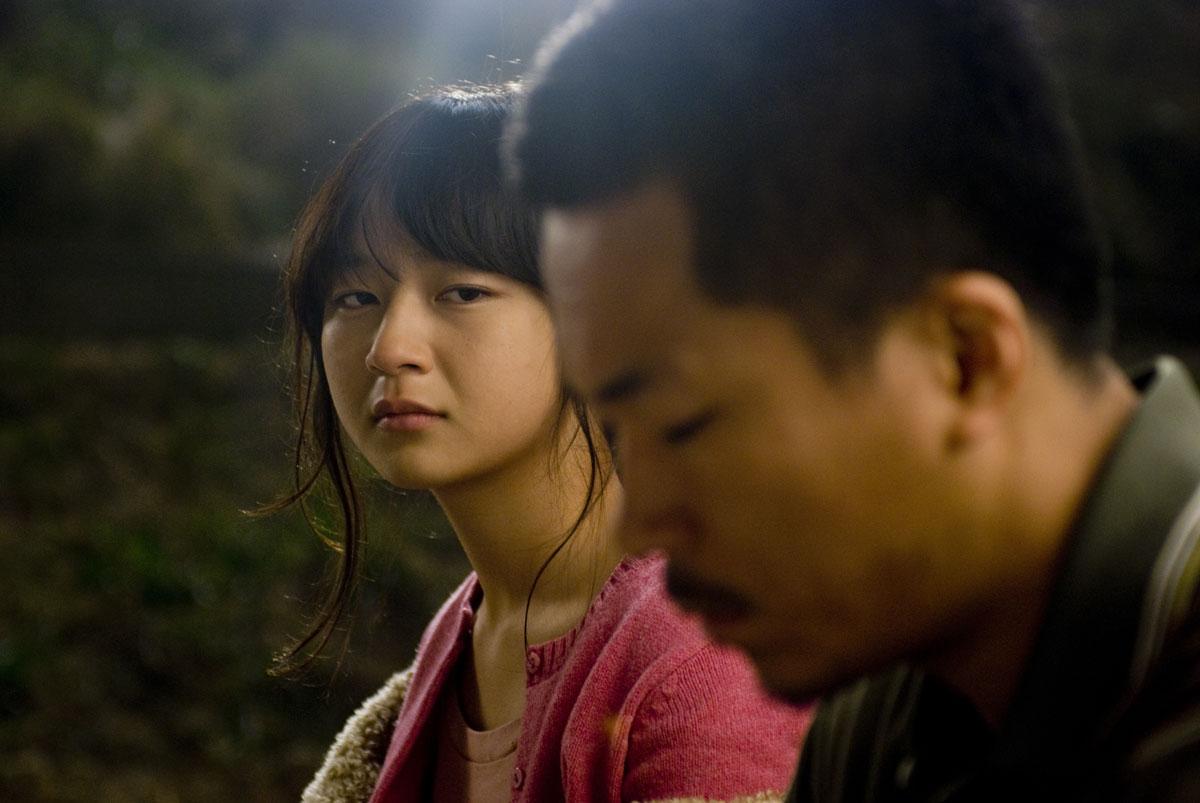
Acclaimed South-Korean actor Yang Ik-june’s directorial feature debut is an emotionally devastating knockout of an experience. Taking on the lead role, Ik-june’s performance is layered and complex, bringing to the screen a character so difficult to engage with and managing to make miracles with him, developing an emotional depth that is impossible to dismiss no matter how negative initial opinions. While this may be the most obscure film to feature here, it is one of the most impressive.
Sang-hoon (Ik-june) is a violent and unabashed loan-shark – or perhaps more fitting, gangster – who is unapologetic in his methods for acquiring payment for his boss. He shows compassion for his young nephew, and essentially nothing but disdain towards everyone else. One day he meets Yeon-hee, a young schoolgirl that he spits on and subsequently punches in the face following her immediate retaliation.
Regaining consciousness, she continues to defend herself and demand an apology, of which he finds surprising and admirable. Over the course of the narrative, the two begin to establish a connection, sharing empathy with one another and finding parallels in their tragedies. In many ways Breathless is an unexpectedly beautiful story – one of sorrow and regret with a clear and damning message for the contemporary society it bravely depicts.
When the audience is introduced to Sang-hoon he is intimidating and appears beyond redemption, perhaps incapable of feeling remorse or the ability to acknowledge the effects of his shocking acts of brutality.
The director and star then asks a lot from the audience: to question our immediate hatred for this lost-soul and begin to strive to understand why his behaviour is so extreme, and to discuss the ways in which he is a product of his history and his environment. It is a performance of great intricacy, and as many will be aware, many of the most fascinating characters throughout cinema are the most difficult to associate with.
As far as cinema hardmen go, Sang-hoon is among the most intensive; the genius of the character though is the journey he undertakes to approach change, and in this respect, this highly capable filmmaker is not ready to provide closure, for the society he depicts demands assessment. When one man evolves, many stay the same. Breathless is a breathtaking achievement, and a film that deserves further discussion for its many merits and its pressing message.
9. Dennis Quaid in Far From Heaven (Todd Haynes, 2002)
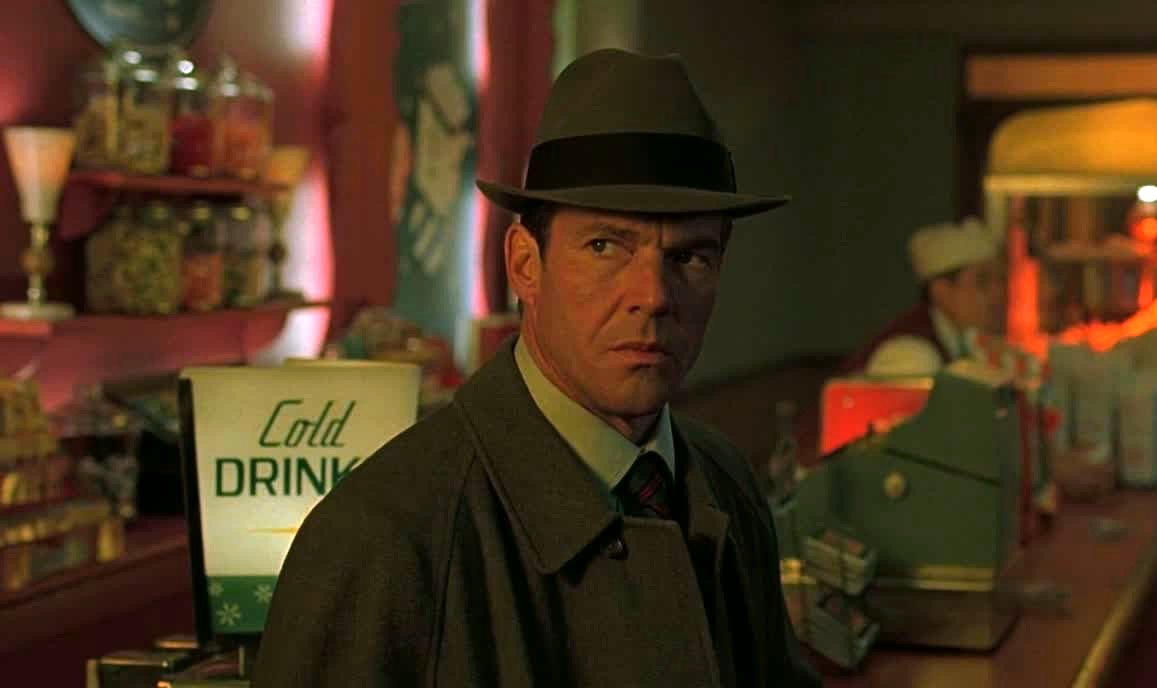
Todd Haynes’ 2002 retreading of a classical Hollywood narrative is always interesting to discuss. The film feels like a respectful love letter to the melodramas of the great Douglas Sirk; the colour palettes and the way Sirk used objects and colour as narrative motifs to connect people is wonderfully utilised here, the attention to detail of the period is lavish, and the performances are impressively nostalgic. However, Haynes comments on the creative freedom available now in comparison to the time in which such great works as All That Heaven Allows and Written on the Wind were made, and is able to explore themes of race and sexuality which were previously restricted.
Julianne Moore’s exceptional central performance could easily have been included here, but it seems a fitting opportunity to highlight Dennis Quaid’s brave and very soulful performance. His role as the idealised image of 1950s masculinity is revealed to be a lie when his adoring wife Cathy (Moore) discovers that he is leading a secret life of homosexuality and deceit.
The scene in which he returns home to confess arguably showcases some of the most phenomenal acting of this century – we truly feel his projection of success being shredded with every mournful word of truth he desperately tries to vocalise. Whenever on screen, he is able to convey such inner-torment, and the audience is able to feel his pain.
It’s also a ranged performance, as he shows himself to be a conflicted man with his own hypocrisies and human flaws – doubts and aches sour the false smiles he attempts for the benefit of his family. Quaid is able to display nuance is his performance, and then contrarily perfect a series of emotional outbursts which are heartbreaking to watch because of our understanding, and also because of our sympathy with his wife.
The characterisation was wise on Haynes’ account, as he references the double-life of such a star as Rock Hudson, and then employs commentary on race to skew the glossy ideals of such films that the star lent his celebrity to. A terrific film.
8. Nicolas Cage in Leaving Las Vegas (Mike Figgis, 1995)
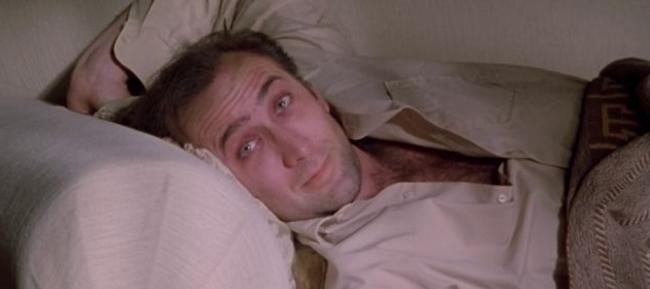
It is alarming that many often seem surprised when you inform them that Nicolas Cage won the Academy Award for Best Actor once upon a time back in 1995. This is in part because of Cage’s apparent indifference to turning down scripts he cares little for, appearing in so much and arguably being present in so little.
He has now been reduced to a maniacal cliche, an energetic outburst good for a few ironic laughs. Those who believe this is all the actor has ever been should go back and re-visit his work in David Lynch’s Wild at Heart, Spike Jonze’s Adaptation, and his crowning achievement, Mike Figgis’ Leaving Las Vegas.
Cage stars as Ben Sanderson, a reckless alcoholic who – after being fired and abandoned by his family and friends for his mistakes – decides to drive down to Las Vegas to drink himself into an early grave. While there, he makes the acquaintance of prostitute Sera (Elisabeth Shue), who gradually begins to fall for the man who warns her never to tell him “Stop”.
Despite this, she stays by his side as his downward spiral threatens to consume him, wishing that she could convince him that life may still have meaning. It is a tale of companionship, desperation, and self-destruction, which refreshingly acknowledges that sometimes people cannot be saved.
Figgis raises habitual themes of selfishness and hope in this perfectly-spun American tragedy, but thanks to its two central performances, this familiar tale of codependency elevates to so much more. Cage has never been better, he makes every ounce of pain he expresses feel so real.
From the very opening scene, the promise and thrill of ending it all, the actor has the audience utterly gripped, intent on chronicling his breakdown to the bitter end. Ben’s blood, sweat and tears seep into every shot, and we too desperately wish to save the broken soul that Cage masterfully projects onto the screen. Everything that the actor does well, he does best here, and it remains one of the most impressive and too often forgotten performances in the history of American cinema.
7. Catherine Deneuve in Repulsion (Roman Polanski, 1965)
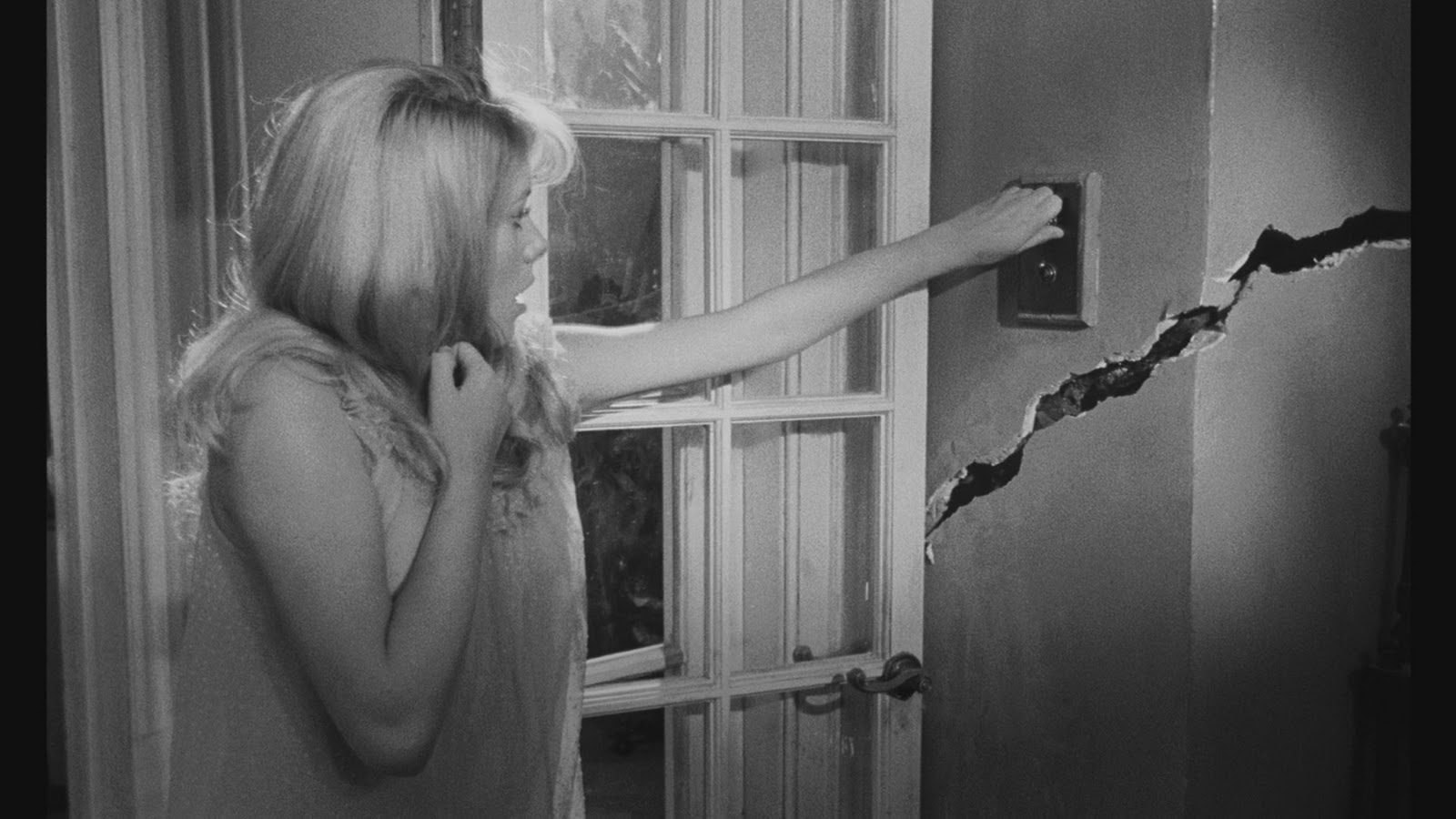
Perhaps most famous for her spellbinding role in Luis Bunuel’s 1967 classic Belle de Jour, Catherine Deneuve’s performance in Roman Polanski’s Repulsion is one to celebrate. The film is the first in a loose trilogy dealing with the horrors of city living and the darkness which can harbour in one’s own home.
Deneuve plays Carol, a young Belgian woman living in a London apartment with her sister. Working in a salon, she fits in as beautiful and glamorous, yet she couldn’t possibly be more distant. Immediately in the film’s exposition she is asked by a client if she has fallen asleep; she’s deep in thought, and remains so whenever on-screen.
Her mind strays far from that of those around her – with the inclusion of her sister, those around her strive for male attention, of which she is deeply repulsed. Her fear of men clearly stems from past trauma, and with a performance which remains mostly silent, the audience is constantly attempting to gain access to her thoughts during the first act.
As the film progresses things become much clearer when she is plagued by nightmarish visions, and the interior of her apartment begins to visually express the deterioration of her fractured mental state. Many may have used inner-monologue – voiceover – or have surrounding characters spill information on the protagonist.
Instead, Polanski was confident that his actress would deliver a thoughtful and contemplative performance, and of course she did. Her character is very mysterious, and Deneuve is able to express so much with her wide and fathomless stares – always agitated and startled, dreading human interaction but desperately imprisoned in her loneliness. At once an image of perfection, which quickly reveals a problematic and disturbing psychological state waiting to erupt.
It’s a performance which escalates masterfully, and mostly depends on physicality to form a complete portrait and study of mental and sexual scarring and repression. Deneuve holds our attention always, and places us so squarely into a fragile mindset in which we find frightening and compelling – something powerful acting such as this is able to balance.
6. Laura Dern in Inland Empire (David Lynch, 2006)
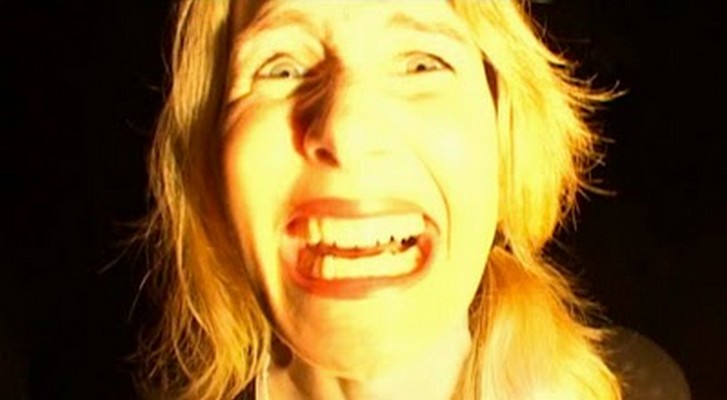
Los Angeles born actress Laura Dern has long been the muse of popular surrealist David Lynch, and has positively shined in his past efforts Blue Velvet and Wild at Heart. Her performance is his 2006 puzzler Inland Empire managed to top them all, leaving a confused and shaken audience breathless in the wake of her drastic and shape-shifting approach to characterisation.
In her most incredible performance to date, Dern plays an actress who is given the lead role in a new film which happens to be a doomed Polish remake of a production which supposedly claimed the lives of its cast.
For the majority that are familiar with Lynch’s work, there is already an awareness when approaching a film like Inland Empire that the narrative will fragment, characters will merge, and in this respect the film can be held in similar regards to Lost Highway or Mulholland Drive; only on a basic level, because Lynch’s last and possibly final feature film is unlike anything else available, at once a culmination of his entire career but resulting in something utterly unique.
Many audiences found the film totally inaccessible, and declared it as the moment that Lynch had finally gone too far. However, the definitive conclusion many reached in the wake of the film was that Laura Dern – whatever it was she was working with – was remarkable in the lead role, and the concrete which held the foundation of Lynch’s nightmare-scape together, for the most part. Her character undergoes many transformations, and while others may have cracked under the pressure, Dern’s schizophrenic performance will leave viewers baffled.
As she shifts from one personality to another, navigating the labyrinth of Lynch’s headspace, the audience feels permanently transfixed by her ability to adapt to any surroundings – to scare, move, and shock us.
Whenever on screen, our eyes are attentive to her every move, placing us into mental states and identities we never knew we could inhabit while watching a film. Contrary to divided opinion, this is a jaw-dropping piece of work and one of Lynch’s greatest heights, and it wouldn’t be so without Dern’s monumental performance.